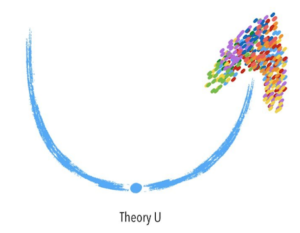
“Live as if the future happened”
Earlier this week I was conducting an initial coaching session with a new client. Midway through I asked him, “Who are your role models and what is it about them that you admire? He identified the organization’s CEO and said, “He inspires me because he lives as if the future has already happened!” That statement struck me; someone who leads not by planning for the future, but leads from a perspective that what you plan has been achieved and future initiatives move forward from there. Confident? “Yes!” Inspirational? Without question. Uncommon? Not really. Jeff Bezos, founder of Amazon, also embraces this perspective. In a recent Forbes interview he shares, “I very rarely get pulled into the today, I get to work two or three years into the future, and most of my leadership team has the same setup. Friends congratulate me after a quarterly-earnings announcement and say, ‘Good job, great quarter,’ and I’ll say, ‘Thank you, but that quarter was baked three years ago. I’m working on a quarter that’ll happen in 2021 right now.”
The idea of leading from the future is the subject of a book by MIT senior lecturer, Otto Scharmer. The second edition of, Leading From the Future as it Emerges considers how we can shift from reactionary leadership in an age of disruption to finding individual and collective ways to lead from the future as it emerges. Scharmer has labeled this journey, “Theory U”, which he identifies as a transformational process of:
- Co- Initiating – Building common intent by stopping and listening to others, and to what life calls you to do.
- Co-Sensing – Observe, observe, observe! Go to the places of most potential and listen with heart and mind wide open.
- Presencing – Connect to your personal source of inspiration. Go to a place of silence and listen to your own thoughts.
- Co-Creating – Prototype the new in a living example by doing.
- Co-Evolving – Embody the new in eco-systems that facilitate seeing and acting from the new.
Scharmer believes that at the core of this new level of thinking we find a shift in the interior condition of the leader, one which senses the emerging future and lets go of fighting an old system. His extensive research with leaders who have demonstrated a deeper sense of knowing reveals that a key to their success is an ability to listen deeply and shift their attention from downloading information to that of presencing – being truly present and sensing what is emerging, engaging with it, and then creating different results. Servant leadership is also a critical component to Theory U, as the model includes all stakeholder groups and integrators across multiple sectors – engaging the whole system with an intention to serve the highest good for all.
Futurist Daniel Burrus also considers the idea of future-based leadership in his book, The Anticipatory Organization: Turn Disruption and Change Into Opportunity and Advantage Burrus maintains that the future arrives fast and looks uncertain because we have not developed the mindset or tools needed. The book provides both:
- Step 1 is learning to separate the “Hard Trends” (that which will happen) from the “Soft Trends” (those which might happen). Hard trends are based on measurable tangible, and fully predictable facts (Example: Student loan debt of those receiving undergraduate or graduate degrees in 2018). Soft trends are predictions based on assumptions and statistical probability (Example: The percentage of those having student loans that will need to finance a car within two years of graduation). Understanding the difference allows us to know which part of the future we can be right about.
- Step 2 is developing what Burrus refers to as the “Anticipatory Organization Model.” Organizations that embrace this model realize that many future disruptions, problems, and game-changing opportunities are predictable and can provide unprecedented ways to gain advantage and build a sustainable organization. The model itself is simple and composed of four key disciplines:
- Know What’s Next (Be knowledgeable of and Understand the Hard Trends)
- Develop Opportunities (Create game-changing opportunities that gain advantage)
- Shape the Future (Put the opportunities into place )
- Accelerated Success (By knowing what’s next and then developing newer opportunities)
Some see the future as something that will happen down the road. Others plan for and try to create their future. And then there are those who already live in the future and see it as something that has already happened. The choice is yours, but I think that third option holds the greatest promise for leading from the future.
Embrace the Challenge
